RABIH KAYROUZ - The Theater of Life
They have been working together since Maison Rabih Kayrouz launched its very first collection. They have been friends for years. Their respective schedules make each shared moment a special one....
They have been working together since Maison Rabih Kayrouz launched its very first collection. They have been friends for years. Their respective schedules make each shared moment a special one....

They have been working together since Maison Rabih Kayrouz launched its very first collection. They have been friends for years. Their respective schedules make each shared moment a special one. For Leclaireur.com, Armand Hadida and Rabih Kayrouz talk about subjects that are close to their hearts, such as the theater of life, the Parisian scene and the values they share.
Armand Hadida: You found your vocation very young, Rabih, didn't you...?
Rabih Kayrouz: At the age of 11. I was determined, I knew I wanted to make clothes. What interested me was not fashion itself. Fashion goes out of style, you get bored. What I like is the garment itself, the creation, the making, the object itself. The making, the making, the making...
AH: That's a bit of my story too. When I was 11 years old, I used to dismantle the engines of Solex bikes. In the garden, everything was boned; it was necessary to make, assemble, repair...
RK: Even when I was a child, the games that made me want to play were those where you had to do something. Ball games, for example, did not interest me, because you don't make anything. I liked games where you were there, shouting, hiding things in drawers, building houses, Legos.
AH: Where was all this going on?
RK: In Lebanon, in a village. We were in the middle of a war and Beirut was inaccessible. So I lived in a village, surrounded by a nice family, in a kind of protected clan. The funny thing is that I knew Paris before Beirut. I was 17 years old, without any experience. It is here that I came to learn, it is here that I discovered everything, starting with my job.
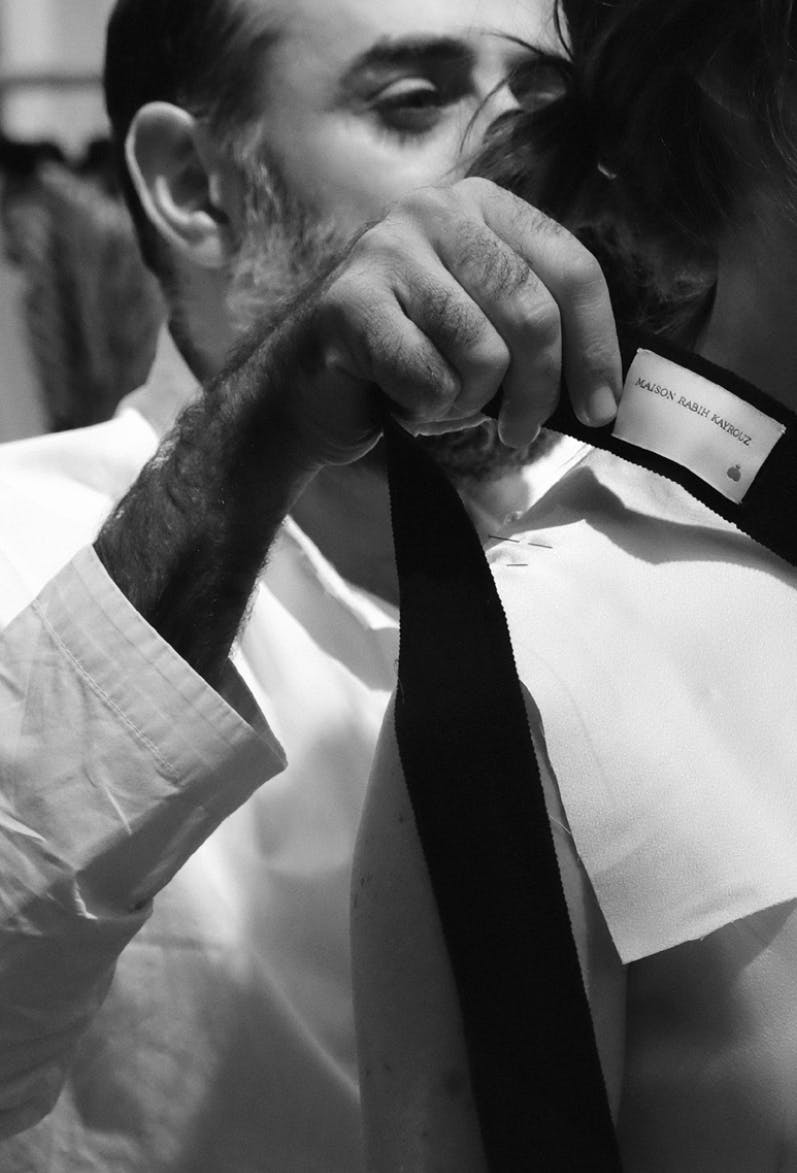
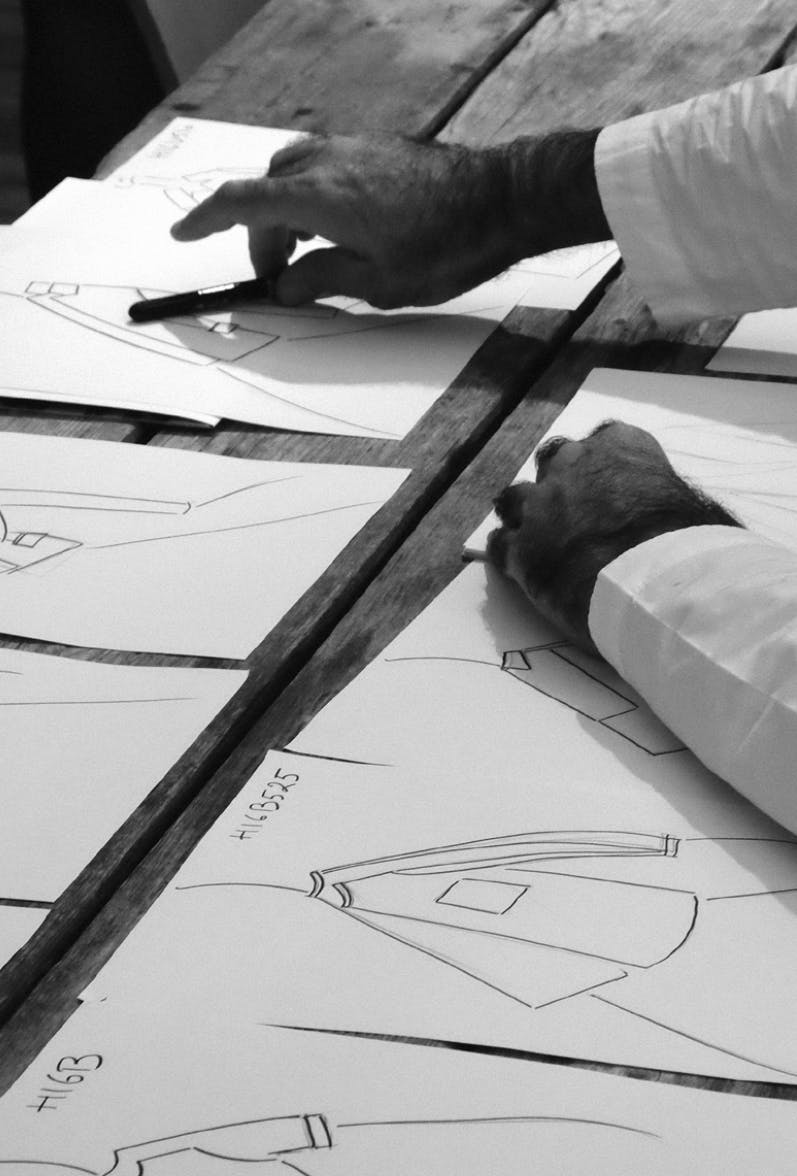
AH: Paris, through your eyes, takes on the appearance of a theater. This is a quality that you cultivate on a daily basis. This place you found, in which you work, was even an old theater. You made it a place to live, you organize dinners...
RK: But yes, "Paris is a party", isn't it? Paris is a party", isn't it? Watching people sitting on terraces, lying in parks, that's part of what I find in this city, and that's what inspires me. I don't only get my inspiration from books, but also from people, from the way they walk, from the way they move their shoulders, their arms. These gestures inspire me to make other gestures when I make the garment. Finally, it's a game. You put yourself in the skin of an actor, in that of a heroine, and everything is played out.
AH: How do you see Paris and its future, when it comes to fashion?
RK: That's the recurring question, right? The future. Is Paris still the capital, will it remain so? Is it possible that one day the magic will not work anymore?
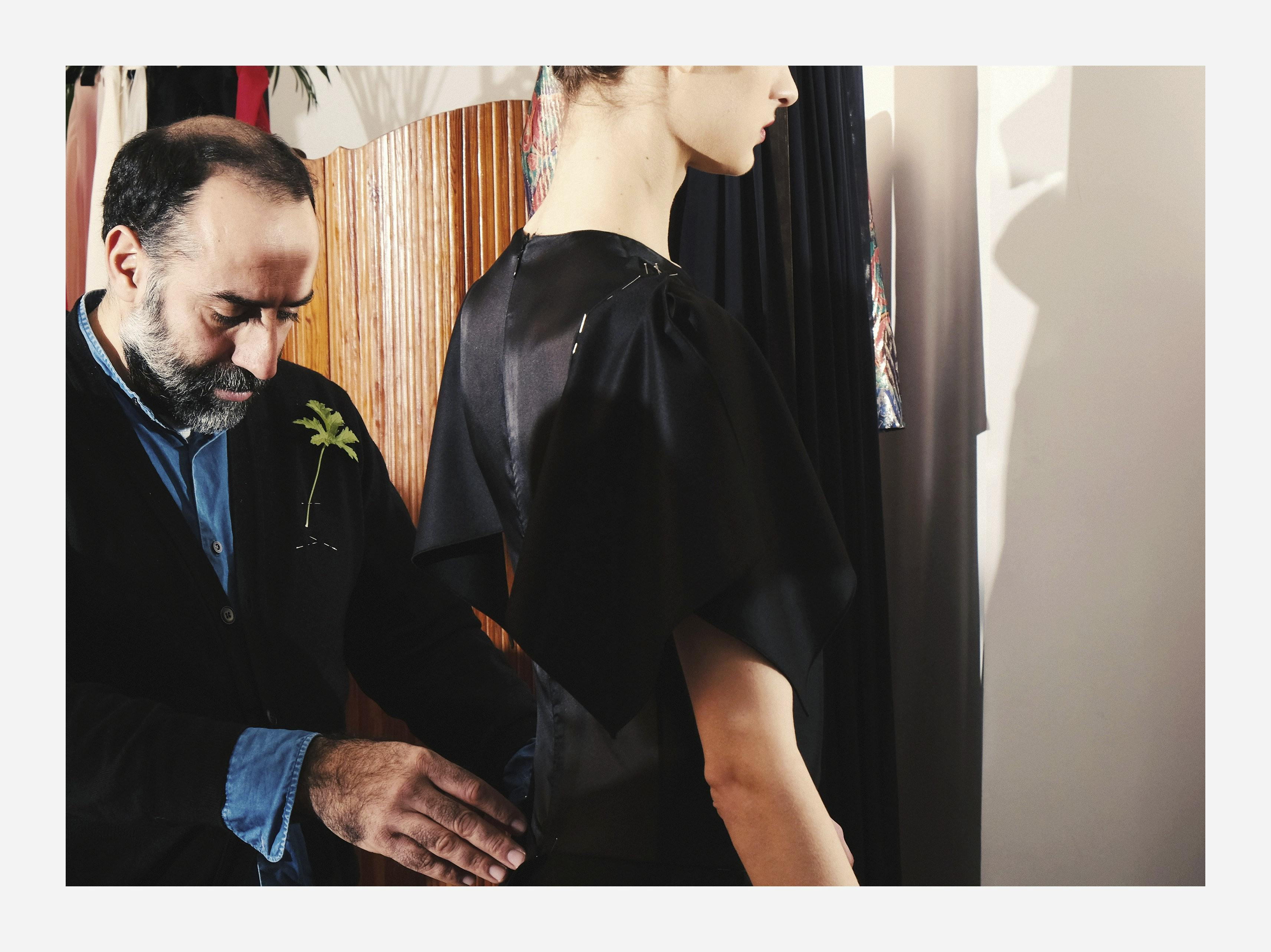
RK: Paris is a magical place in itself, not only for fashion. Good wine is in France, good cheese is in France, you eat well, you live well, what you see is beautiful, a walk is enough to feed your inspiration. Fashion has its place here, because it is here, above all, that its conditions are best met. When craftsmanship meets creation, it is the best alchemy. These two elements exist here and this is what attracts the whole world. I don't see how this essence could disappear.
AH: Today, your clothes are worn in all capitals. The Rabih Kayrouz collection is represented everywhere, it has its success. How do you see the next step? Your next projects?
RK: I am a dissatisfied person. I have a quest, which pushes me towards a garment, towards a wardrobe. I find that it is not complete yet. So I continue this quest of the wardrobe that haunts me, and that I want to develop more and more...
AH: Are you referring to shoes, accessories?
RK: First, there is the garment itself. Then the accessories, certainly, like the objects that will complete this collection: the shoes, the leather goods... What I'm looking for is a brand that you wear and that you can't part with.
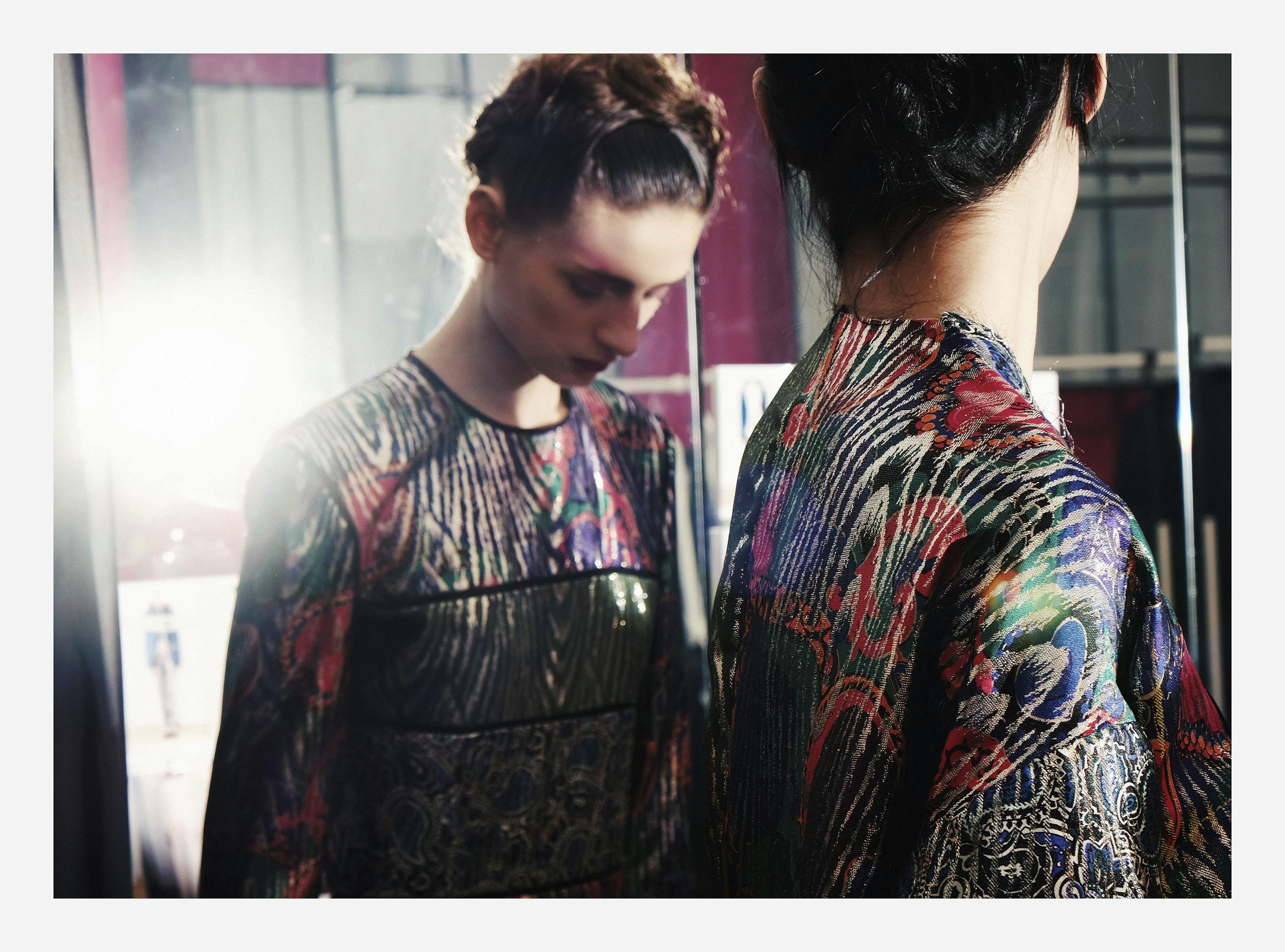
AH: What does your ideal day look like?
RK: There is a time when I dream, when I walk around, when I don't draw. I absorb like a sponge, I store images, colors, volumes in my head. It can be in Paris, or through the window of a plane, following the clouds or the sun with my eyes, during a four hour flight.
AH: You love music passionately. What part does it play in your work?
RK: I don't listen to much music when I work. Music for me is the people, it's the studio, because I love working there. That's where the creation starts, when I take a piece of fabric and start to manipulate it, when I work with my pattern makers, when I try the garment on. The workshop is live, where everything takes shape... First there is my gesture, then the gesture of the person who will wear the garment.
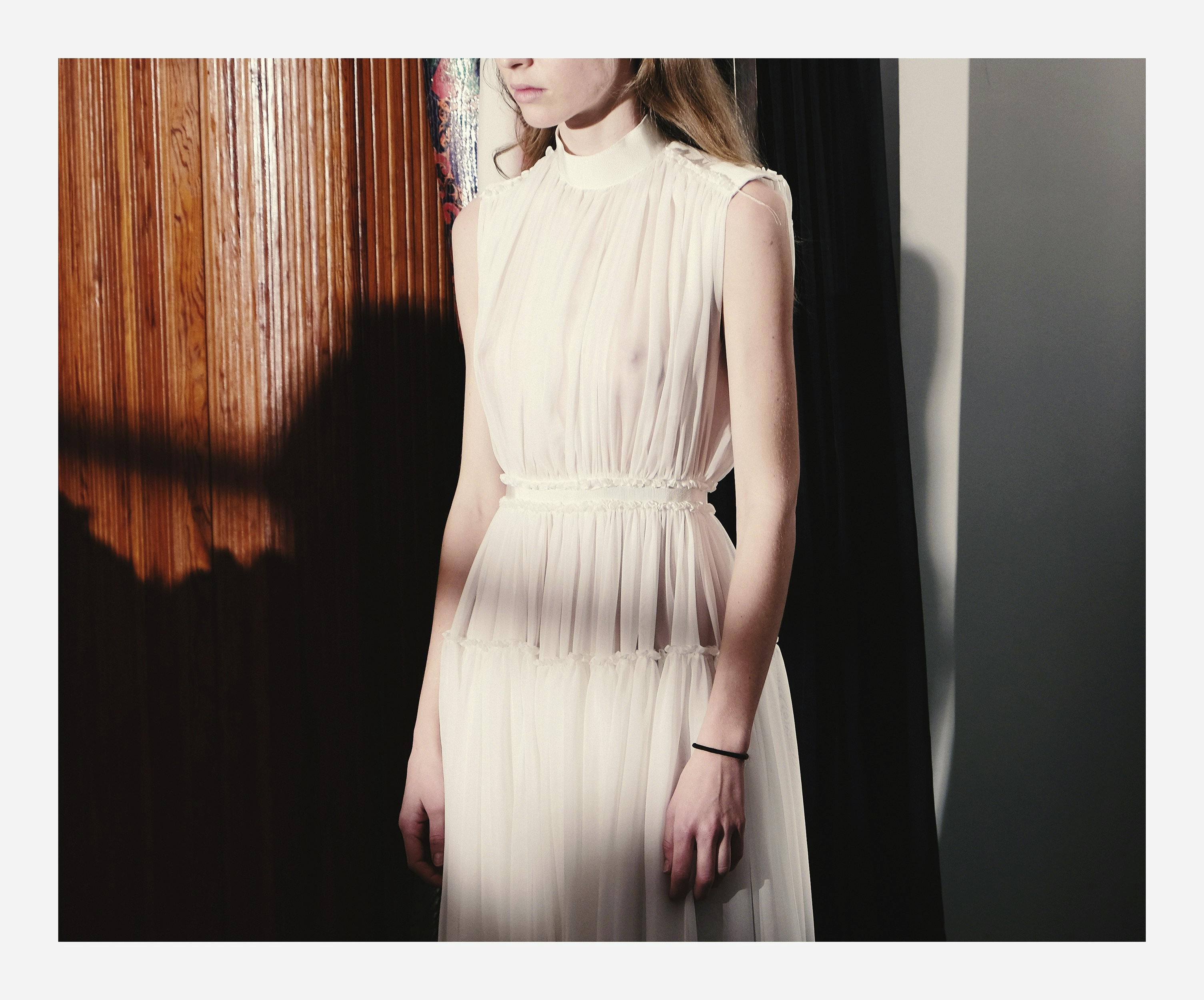
AH: In recognition of your work in creation and fashion, the Ministry of Culture named you Chevalier des arts et des lettres. Here you are today, an Officer. How did you, Lebanese and Parisian, welcome this recognition?
RK: I can't say how long I cried when I received the phone call announcing this beautiful news. I couldn't believe it. It was very touching, because after all, I do my job, and I do it with all my heart. I don't expect recognition because I do my job. I do it for me, my house, my team: I take it as a duty. So it was an emotional event, probably because I am not French. I received a French education, in a French school in Lebanon, but I have always kept a kind of external view on this country that respects people, that recognizes them, that welcomes them. I have always been proud to be Lebanese. This announcement obviously made me want to stay in France, to be French, even! It is the respect, not only for the man, but also for his work, his profession, which touched me a lot.
AH: What advice would you, the elder, have to share with young designers who are just starting out, after four years of study?
RK: In the fashion industry, financial, strategic and marketing aspects are a reality, as in many creative professions. My only recommendation is to respect this reality, to take it into account, because it's what allows us to make a living, but not to rely only on it, not to forget that creation is emotion before and after all, which must really come from the guts. The key to success is not to follow a predetermined plan. The plan must follow.
AH: So that's the one thing you can't negotiate with...
RK: Exactly. The plan has to follow us. Getting on a train and being taken away is fine. But you have to indicate the destination. Today, in creation, we forget to take time, to think, to concentrate, to know where we want to go. My only advice: get out your guts, follow your heart, tell us where you want to go. Let us take you there.
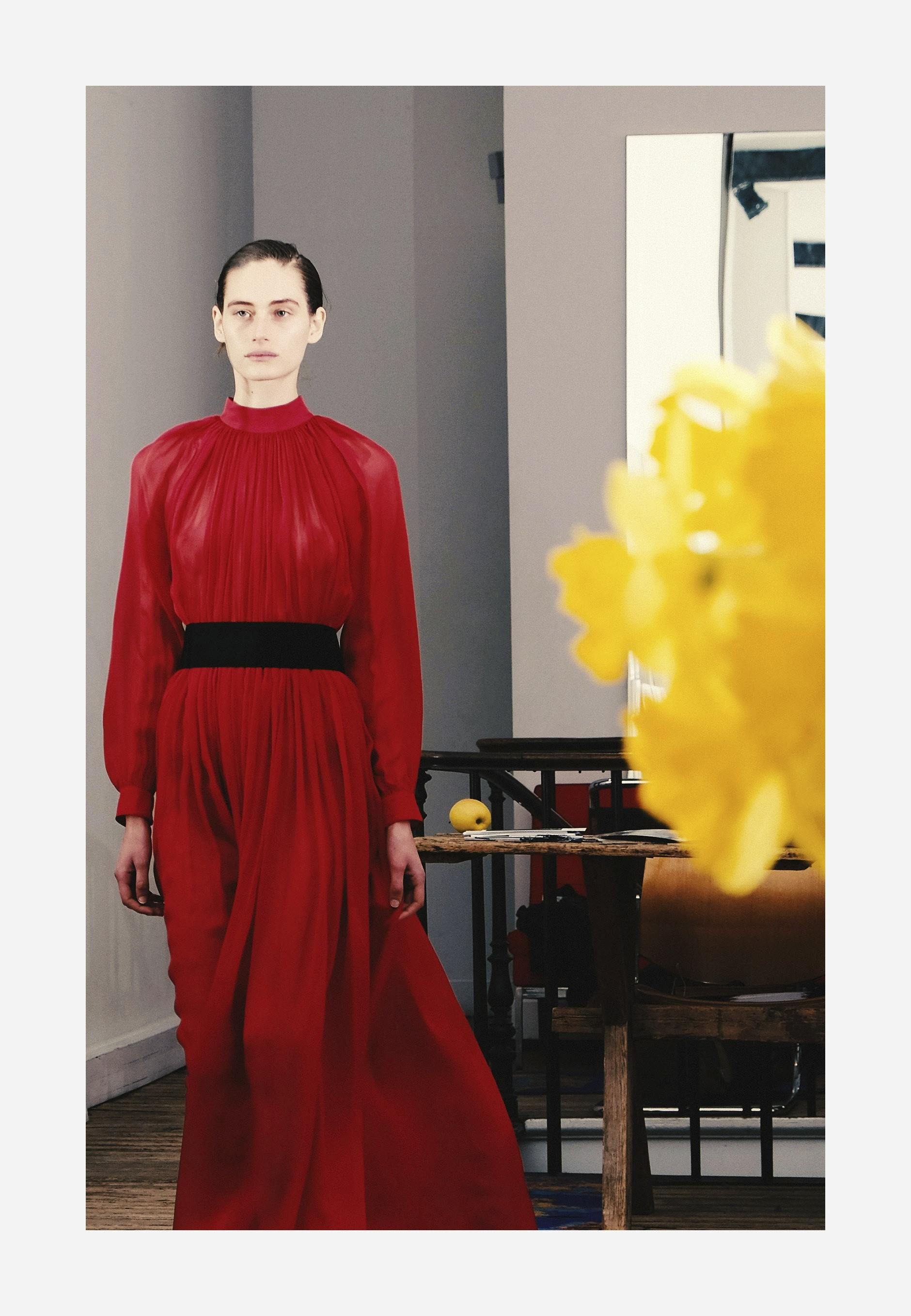
AH: Speaking of destinations... what are the places in Paris that serve as a little inspiration for you, that trigger a little emotion?
RK: For me, moments are about people. There is a saying in our country: "heaven without people is a desert". I like people. I love parties. The most beautiful moments are the ones I share, like here, or at your place. I like the invitation itself. Being invited, being the one who invites. These are important moments. And walking around too. I love walking in Paris, crossing bridges, at sunset or sunrise. When you cross a bridge, suddenly, with the reflections, there are always two different lights to discover: that of a departure and that of an arrival.
Maison Rabih Kayrouz is available at Leclaireur Boissy d'Anglas.
Your cart is currently empty.
Start Shopping